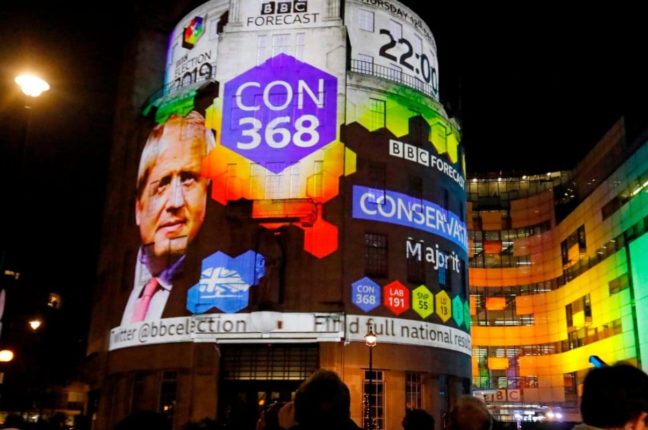by Morak Babajide-Alabi
The United Kingdom’s 2019 General Election is won and lost. As the results came in, the victorious party became more raucous in celebration. The clever ones among the losers are already laying out strategies on how to win the next election. The results may have come as a surprise to political amateurs, but for the experts, everything took an expected course.
For the first time since Margaret Thatcher’s record-breaking victory sweep to 10 Downing Street in the eighties, the Conservative Party engineered a comfortable majority win. Boris Johnson, the incumbent Prime Minister, led the party to victory with 365 of the 650 seats up for grabs. This is above the statutory 326 seats needed to form a majority government.
It was a dismal outing for the main opposition Labour Party, led by Jeremy Corbyn. It suffered a defeat described as the worst since 1935. While Johnson is relishing his victory, Corbyn is contemplating his political future. One thing is apparent, though, the residency in Downing Street is now an illusion. He realised this and said: “I will not lead the party in any future general election campaign.”
To many Labour Party supporters, this is comforting news. It allows them to hope for the next general election. For the Tories, the Labour Party is now secondary as they relish their victory at the polls. It confirms Johnson’s legitimacy to manage the county for the next five years. The one thing in their thoughts currently is achieving the long-term wish to take Britain out of the continental European Union.
It was a crucial election in the history of the country. It was the concluding word on the lingering BREXIT, hence the tag – the BREXIT election. The election was to, sort of, determine the relationship of the UK with the rest of the world. Therefore, to the voters, it was an enormous responsibility. The results across the country show the pattern of weariness among the citizens. There were disapproving voices (votes) on the long, winding process of implementing the result of the 2016 EU Referendum.
The citizens spoke loud and clear with their votes as they want an out as soon as possible. They delivered their votes to the Conservative party because they think it is capable of getting things done. The Tories did a good job on the peoples’ emotions. They turned BREXIT to the currency of political discussions. It worked in their favour. The snappy slogan “Get BREXIT Done” energised the supporters and put the other parties in jeopardy. They were portrayed as standing in the way of the people. Johnson became the defender of the people – the leader on the people’s side. The strategy paid off.
The voters were on two opposite divides – Leave EU or Remain. There was no intervening ground. To the Tories’ advantage, the aggrieved Leavers were more in number than the Remainers. Two “not so credible” leaders led the two extremes. Neither Johnson nor Corbyn represent an ideal candidate, as they both had credibility issues.
Johnson is not an expressly liked politician, but on this occasion, he was the most preferred of the two devils. He did not win the election based on his personal qualities, but the fact that Corbyn remains a “dented” politician. Johnson comes across as more believable on national issues than his opponent. I wrote sometimes ago Johnson cannot “be described as a dimwit. It will also be foolhardy to form an opinion of him by his dress sense, his hairstyle or his garrulous nature or manner of walking. He may not come across as a textbook description of an intellectual, but make no mistake he does make use of his brain.”
Many see Corbyn as untrustworthy and “extremely” unreliable. He is a man with many “dark stains” on his red coat. A socialist who is unashamed to scream about his “faith” on the mountain top. There is nothing wrong in being a socialist, but the British are unwilling to live in a socialist society – not now. He was far too advanced to the left, they said.
The Tories realised Corbyn’s struggles, and they hit hard on the “damaged” reputation for political gains. They made sure the racist and anti-Semitic claims against Corbyn became the topic, for greatest damage. It achieved the desired result. The UK’s Jewish Chief Rabbi, Ephraim Mirvis, got involved. He warned a Corbyn Premiership would portend dark days for the country.
The election was not all about Johnson and Corbyn. There were others too. One of them was Jo Swinson, the leader of the Liberal Democrats. Under her brief watch, the members believed they could take over Westminster. Regrettably, at long last, the steam at the start of the campaign became painful “huffs.” She had the chance to represent the British liberal voices but preferred to cancel Article 50. This was not what the people wanted. Swinson lives “in a world where sometimes strange things have happened in politics” and she experienced one of them. She lost her seat by a slim margin.
Swinson became jobless by the success of her fellow Scottish Nicola Sturgeon. The Scottish Nationalists Party (SNP) swept 48 of the seats in Scotland. The leader, Sturgeon, promptly placed the aggressive demand for a second independence referendum. It will be a massive showdown between Johnson and Sturgeon in days, weeks, months and years to come.
Nigel Farage’s BREXIT Party did not achieve any impact. Farage started on a “hot” note, but he walked back on all the “promises” of the party. He “conceded” defeat to the Tories in constituencies where they held the majority in previous elections. Would this result finally consign this “nationalist” into the dustbin of history? Or would there be another reincarnation?
For the Labour Party, things will no longer be the same. Corbyn’s leadership divided the party down the middle. There has been an exodus of loyal members from the party, as they could not stand his style. Notable members defected to other parties, while those still in the fold openly campaigned against a Labour victory. He lost all the grounds he gained in the 2017 election to infighting, breakaways and lack of clear vision for the future of the UK.
Thursday night was a time of reckoning for the party, leaders and the few supporters who had expected a miracle. They looked on in disbelief as the result of the exit poll came up at ten o’clock. Some consoled themselves stressing that it was the exit poll. They chose not to believe in history as they forgot that exit polls for the three previous general elections have been accurate.
They did not have to wait for long, as the first upset of the night came within the hour from the North East. Ian Levy, a Conservative candidate, became the winner in the Labour’s long-held Blyth Valley constituency. This represented the pattern of the night all over the country. The Labour Party has been humbled with this painful defeat, under one of its most unpopular leaders in recent times.
Johnson has achieved his long-time dream of steering the country. He has done it in style by breaking down the traditional red walls across the country. The question right now is, will this majority propel him towards engineering a country “for all”? Or will the historical Johnson take over now? How long will he be able to maintain this?
As written for the Diaspora Matters Column, Sunday Vanguard, December 15, 2019







